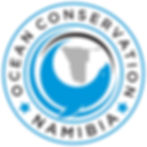
The Global Plastic Crisis
How did we end up with a plastic crisis?
Plastic has transformed modern life — but it’s also creating one of the most urgent environmental threats of our time. Cheap, durable, and disposable, plastic is everywhere. The problem? It never really goes away.
For wildlife, the impact is devastating. Discarded fishing nets, strapping bands, and plastic packaging entangle seals, turtles, seabirds, and whales, often with fatal consequences.
At Ocean Conservation Namibia, we see this reality every day in the seals we rescue from plastic debris. Beyond entanglement, plastic pollution also breaks down into microplastics - tiny fragments now found in seafood, drinking water, and even human blood. The health risks remain largely unknown, but experts warn it could be a global health crisis in the making.

Every day, the equivalent of 2,000 garbage trucks full of plastic are dumped into the world's oceans, rivers, and lakes.
Plastic is also a climate issue. Made from fossil fuels, its production and burning release significant greenhouse gases. And while governments have pledged to cut single-use plastics, meaningful progress is slow. A powerful plastics and petrochemical lobby continues to stall reforms, while global plastic production is projected to triple by 2060 if nothing changes (OECD).
Tackling this crisis means more than using reusable shopping bags and beach cleanups. It requires reducing plastic use at the source, creating alternatives, holding corporations accountable for waste, and protecting wildlife on the frontlines.
The recent failure of global negotiations on a plastics treaty, lead by the United Nations Environment Programme, shows that the world has not yet grasped the urgency of this crisis.
For the most accurate and up-to-date data on plastic pollution and the global plastic crisis, please visit the UNEP Publications & Data portal.
Check out OCN's social media information campaign about
"The Global Plastic Crisis - Is Recycling the Answer?"

Subscribe to Ocean Conservation's
Monthly Newsletter!
Want to see past editions? Visit our Newsletter Archive
Questions? Visit our Frequently Asked Questions
Want to download our free PDF calendar for 2026? Click HERE
The Ocean Conservation Namibia Trust is a registered charitable trust with the Namibian High Court.
Ocean Conservation Namibia, PO Box 5304, Walvis Bay Namibia
Ocean Conservation International is registered as a non-profit entity under chapter 501(c)(3) in the U.S.
Ocean Conservation International, 8 The Green, STE A, Dover , DE 19901
Contact us: info@ocnamibia.org
Please visit our Frequently Asked Questions for more information on our rescues.
